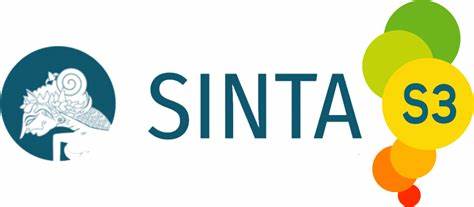THE EFFECTIVENESS OF ROLE PLAY IN TEACHING SPEAKING
DOI:
https://doi.org/10.22460/eltin.v3i2.p%25pAbstract
Speaking is one of essential skills that should be mastered by students. In fact, the students face difficulties in speaking such as difficulty to arrange the sentences, fear of making mistakes, and lack of motivation. It is supported by Nunan (1993), he states that there are some challenges in teaching speaking skill in EFL classroom namely lack of motivation, and they tend to use their first language. Related to those problems, role play is offered to overcome the problems in speaking. The aim of the research was to know the effect of using role play in teaching speaking. The research used pre-experimental design with one group pre test and post test design which consist of 30 students as the sample. The data were obtained by using pre test and post test. Then, obtained data were analyzed by using SPSS 20. The result of the research showed that significance value was .00 and it is lower than the significance level .05. It means that the null hypothesis was rejected. Thus, teaching speaking by using role play has a significant effect on improving the students’ speaking ability.Â
Â
Keywords: role play, speaking, motivation
References
Best, J. W. (1997). Research in education. New Jersey: Printice Hall. Inc.
Brown, H. D. (2001). Teaching by principles: an interactive approach to language pedagogy 2nd Ed. New Jersey: Prentice Hall Inc.
Budden, J. (2006). Role play. UK, London: BBC.
Byrne, D. (1986). Teaching oral English: longman handbooks for English teachers. Singapore: Longman Group, 1986.
Cameron, L. (2001). Teaching language to young learners. New York: Cambridge University Press.
Crowl, T. K. (1996). Fundamentals of educational research. New York: Brown and Benchmark publisher.
Ladousse, G. (1995). Role play. New York: Oxford University Press.
Larsen-Freeman, D. (1986). Techniques and principles in language teaching. USA: Oxford University Press.
Harmer, J. (2007). The practice of language teaching. fourth edition. Edinburg: Pearson Education Limited.
Hatch, E. & Farhady, H. (1987). Research design and statistics for applied linguistics. Los Ageles: Newburry House Publisher.
Nunan, D. (1992). Research methods in language learning. New York: Cambridge University Press.





